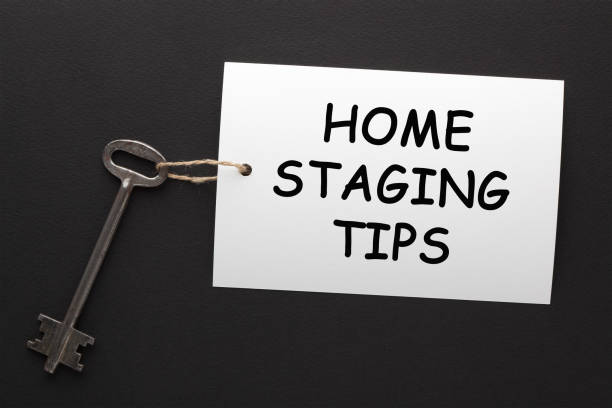Real estate or buying a home or a property is one of the biggest and most exciting things many people do in their lives. But it can also be a little scary because homes usually cost a lot of money. Most people don’t have enough cash saved up to pay for a house all at once. So, they need to find ways to get the money to buy their dream home. This is called financing.
Did you know that about 87% of homebuyers in the United States use some kind of loan to buy their homes? That means almost everyone needs help to pay for their house. According to the National Association of Realtors, the average home price in 2024 is around $400,000, which is a lot of money for most families.
So, how do you pay for a house? What are the best ways to get money to buy property? Let’s explore five smart and easy-to-understand options that can help you buy your own home or property.
Are you ready to discover how you can make your real estate dreams come true?

—
1. Traditional Mortgage Loans: The Most Popular Choice
A mortgage loan is the most common way people pay for a house. Imagine you want to buy a house that costs $300,000. You might not have all that money saved, so you go to a bank and ask to borrow most of it. The bank agrees to lend you the money, but you have to promise to pay it back little by little over many years.
How Does a Mortgage Work?
– You pay a down payment first. This is a part of the house price you pay upfront. Usually, it’s between 10% and 20%. So, for a $300,000 home, you might pay $30,000 to $60,000 upfront.
– The bank gives you the rest of the money.
– Every month, you pay back some of the loan plus interest. Interest is like a fee the bank charges for lending you money.
– Mortgages usually last 15 to 30 years. This means you have a long time to pay back the loan.
Why Do People Like Mortgages?
- Low Interest Rates: Banks usually offer lower interest rates compared to other loans.
- Long Time to Pay: You can spread out the payments over many years, making it easier to afford.
- Tax Benefits: In some countries, you can get tax breaks on mortgage interest.
What Do You Need to Get a Mortgage?
– A good credit score. This is a number that shows how well you pay back money. The better your score, the easier it is to get a mortgage.
– Proof of income. The bank wants to see that you have a steady job or money to pay the loan.
– A down payment saved up.
Sarah wanted to buy her first home. She saved $40,000 for a down payment and went to the bank. Because she had a good job and a credit score of 720, the bank gave her a mortgage with a 4% interest rate. She now pays about $1,200 every month and is happy to own her own house.
Expert Insight: The University of Michigan found that borrowers with credit scores above 700 get better mortgage deals, saving thousands over the loan’s life.
—
2. Private Lenders and Hard Money Loans: Fast and Flexible
Sometimes, people want to buy a house quickly or don’t qualify for a traditional mortgage. Maybe their credit score is low, or they don’t have a steady income yet. In these cases, private lenders or hard money loans can help.
What Are Private Lenders?
Private lenders are individuals or companies that lend money for buying property. They don’t work like banks. Instead, they look more at the property’s value than your credit score.
What Are Hard Money Loans?
Hard money loans are short-term loans from private lenders. They usually last from 6 months to 2 years and have higher interest rates than regular mortgages.
Why Choose Private Lenders or Hard Money Loans?
- Fast Approval: You can get money quickly, sometimes in just a few days.
- Flexible Terms: They can be more flexible with credit and income requirements.
- Good for Fix-and-Flip: If you want to buy a house, fix it up, and sell it quickly, this is a good option.
What Are the Downsides?
– Higher interest rates, sometimes 8% to 15%.
– Short repayment period, so you need to pay back quickly.
– Usually requires a big down payment or collateral.
Real life Story:
John wanted to buy a house that needed repairs. He didn’t qualify for a bank loan because his credit score was low. He found a private lender who gave him a hard money loan. John fixed the house in six months and sold it for a profit, then paid back the loan.
—
3. Equity Financing: Sharing the Investment
Equity financing is when you get other people to invest money with you to buy a property. Instead of borrowing money and paying interest, you share ownership and profits with your investors.
How Does Equity Financing Work?
– You find investors who want to put money into your property.
– They give you money to buy or develop the property.
– In return, they get a share of the profits or ownership.
– You don’t have to make monthly loan payments.
Who Uses Equity Financing?
– Real estate developers who build big projects.
– Investors who want to buy expensive properties.
– People who want to reduce their risk by sharing it.
Pros and Cons
- Pros: No monthly payments, shared risk, access to more money.
- Cons: You share profits and control, so you don’t own 100% of the property.
Example:
A group of friends wanted to buy a rental property but didn’t have enough money individually. They pooled their savings and bought the property together. They share the rent money and decide together how to manage the property.
—
4. Savings and Personal Funds: Paying with Your Own Money
If you have saved enough money, you can pay for your home without borrowing. This is the simplest way to buy a property.
Why Use Your Own Savings?
– You don’t owe anyone money.
– No interest or monthly payments.
– You fully own the property from day one.
What Are the Drawbacks?
– It can take a long time to save enough money.
– Using all your savings can leave you without emergency funds.
– You might miss other investment opportunities.
Tips for Saving
– Set a clear goal for how much you need.
– Save a fixed amount every month.
– Cut unnecessary expenses.
– Use a savings account with good interest.
Real life Example:
Emma saved $100,000 over 10 years. When she found her dream house, she paid cash. She didn’t have to worry about loans or interest and felt proud to own her home outright.
—
5. Government-Backed Loans and Grants: Help for Homebuyers
Many governments want to help people buy homes, especially first-time buyers. They offer special loans and grants that make it easier to afford a house.
What Are Government-Backed Loans?
These are loans guaranteed by the government. This means the government promises to pay the bank if the borrower can’t. Because of this, banks offer lower interest rates and smaller down payments.
Common Types of Government Loans
- FHA Loans: Require as little as 3.5% down payment.
- VA Loans: For veterans, often with no down payment.
- USDA Loans: For rural homebuyers with low or moderate income.
What Are Grants?
Grants are money given by the government that you don’t have to pay back. They are usually for low-income families or special groups.
Pros and Cons
- Pros: Lower down payments, easier to qualify, lower interest.
- Cons: Property must meet certain rules, income limits apply.
Example:
Carlos used an FHA loan to buy his first home. He only needed to save $7,000 for the down payment, which was much less than the usual 20%. This helped him get into a home faster.
—
Understanding Key Terms in Real Estate Financing
Before we finish, let’s look at some important words you will hear when financing a home:
- Down Payment: The money you pay upfront when buying a home.
- Interest Rate: The cost of borrowing money, shown as a percentage.
- Credit Score: A number that shows how good you are at paying back money.
- Loan Term:How long you have to pay back the loan.
- Closing Costs: Fees you pay when you finish buying a home, like taxes and lawyer fees.
- Collateral: Something valuable (like the house) the lender can take if you don’t pay back.
—
FAQs
Q1. How much do I need for a down payment?
A: Usually 10-20% of the home price. Some government loans need less.
Q2. Can I buy a house with bad credit?
A: It’s harder, but private lenders or government loans might help.
Q3. What are closing costs?
A: Fees like taxes, insurance, and legal costs paid when you buy a house. Usually 2-5% of the price.
Q4. How long does it take to get a mortgage?
A: Usually 30 to 60 days, but private loans can be faster.
Q5. Is it better to pay cash or get a loan?
A: Cash means no debt, but loans let you keep money for other things.
—
How to Choose the Best Financing Option for You
Choosing the right way to pay for your home depends on many things:
– How much money you have saved.
– Your credit score.
– How fast you want to buy.
– Your plans for the property (live in it, rent it, sell it).
– Your comfort with debt or sharing ownership.
Take time to learn about each option and talk to experts like mortgage brokers or financial advisors.
—
Buying a home is a big step, but knowing how to pay for it makes it easier. Even if you choose a traditional mortgage, a private loan, equity financing, your savings, or government help, each path has its own benefits.
Keep in mind that, smart financing helps you buy the right home, keep your money safe, and build your future. As real estate expert Robert Kiyosaki says, “Real estate investing, even on a very small scale, remains a tried and true means of building an individual’s cash flow and wealth.”
So, are you ready to take the first step and find the best way to finance your dream home?
—
Thank you for reading! Keep learning and stay excited about your journey to real estate success.










met0mu
ioylre
40yif0
zuw0lg
2ecmgd
4jhxzm
j9l1re